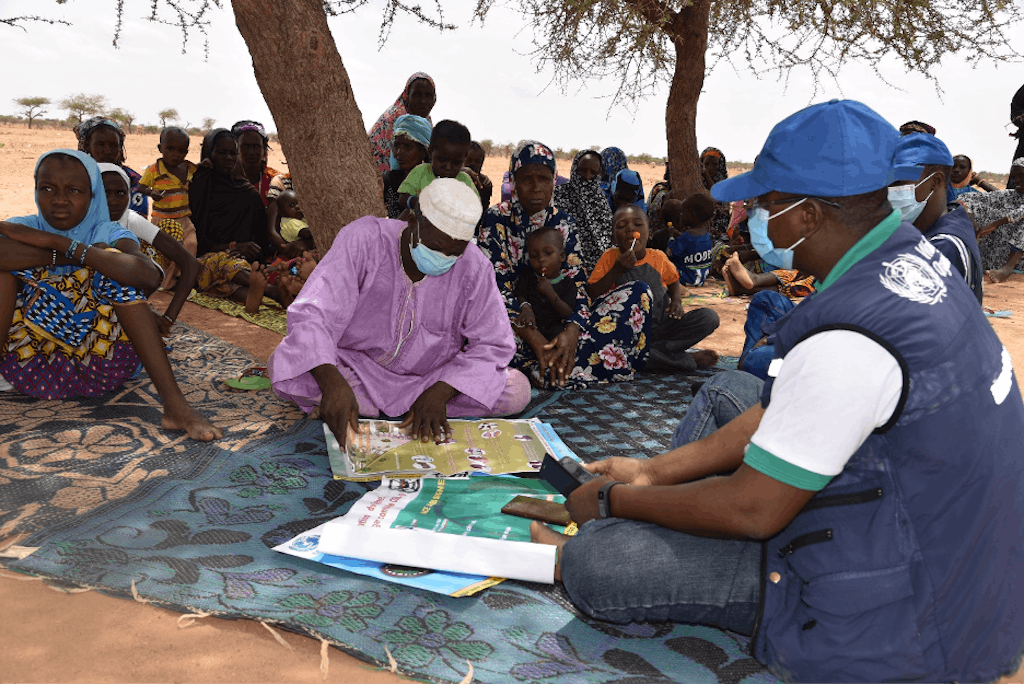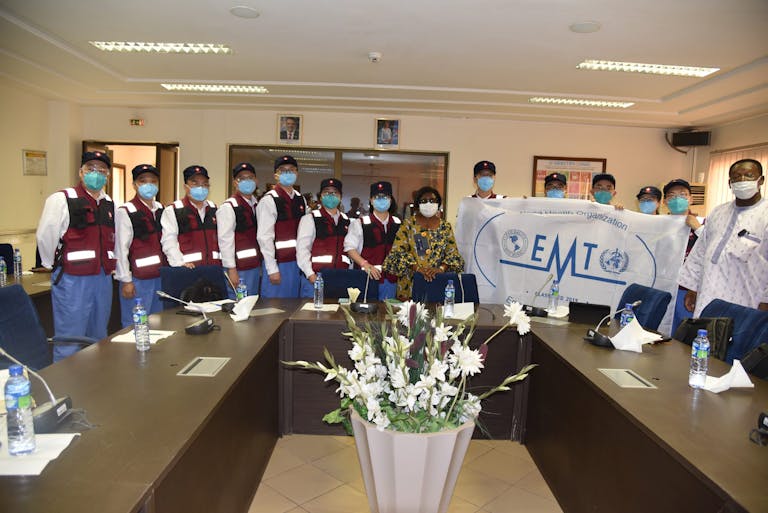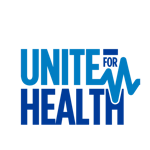With help from the COVID-19 Solidarity Response Fund, the World Health Organization is supporting the fight against COVID-19 in some of the world’s most difficult contexts, including Burkina Faso, a country facing increasing violence.
Before the first case of COVID-19 was detected in Burkina Faso on March 9, the country had already been facing a complex humanitarian and security crisis.
To date, increasing violence and armed conflict by insurgent groups has affected 2.2 million people and led to the displacement of more than 1 million civilians. Attacks have decreased the number of functioning health facilities in an already weak health infrastructure, while increasing the demand for health services. In September alone, 95 health facilities were shut down, comprising 8.5% of health services in the six regions of Burkina Faso where conflict occurs. The health care infrastructure in Burkina Faso is underdeveloped, with poor data systems and inadequate emergency health services — particularly as it relates to the COVID-19 response. This is the context that the World Health Organization (WHO) country office faced at the start of the global pandemic.
“WHO’s guidance and assistance has been instrumental since the beginning of the health emergency,” said Alimata J. Diarra-Nama, WHO representative in Burkina Faso and head of technical and financial partners in the health sector. “We helped prepare the country from the beginning … by ensuring that preparedness and response plans were finalized and implemented to tackle the COVID-19 pandemic.”

Shaping Burkina Faso’s response against COVID-19
In a rapidly evolving health situation, access to accurate information is the most important factor. Diarra-Nama — who has been on call 24/7 throughout the pandemic — says she starts her workday each morning by briefing herself with the latest WHO information about the pandemic. She then shares the briefing with her staff and local partners, as well as with Ministry of Health officials, to ensure that they are all on the same page in terms of the national response. Diarra-Nama ends her day by touching base with her designated WHO incident manager — the day-to-day point of contact for overseeing the emergency response — to discuss any challenges or developments.
Information sharing is a key component of WHO’s COVID-19 response in Burkina Faso, which has included deploying epidemiological consultants to support surveillance activities, security reinforcement to help health teams access hard-to-reach parts of the country, and other infection prevention and control services. Another area in which WHO has supported Burkina Faso’s response is testing.
Earlier on during the outbreak, amid high demand and low supplies around the world, the country’s laboratory had a shortage of transport equipment for test samples. Against great odds, according to Diarra-Nama, health authorities were able to combine expertise from around the country with expertise from WHO to produce the supplies themselves while they waited for more to be shipped in.
In June, WHO also supported the construction of 13 new triage centers in health facilities across the country. The centers are equipped with hand-washing areas, stations for taking the temperature of patients and visitors, and waiting areas to isolate patients. Diarra-Nama believes that these centers will be useful in keeping health workers and patients safe from infection even after the peak of COVID-19 disease has passed.

“The health minister is very confident in WHO’s ability to help the country. Anytime there was a problem or a lack of supplies, they knew they could count on WHO, 24 hours a day,” she said.
WHO support to Burkina Faso during the COVID-19 emergency has been crucial on several other fronts:
- In April, WHO supported the training of over 550 health workers on best practices in treating the new virus.
- Also in April, WHO coordinated a large donation of medical supplies and a mission of Chinese experts to the country to help fight the disease based on China’s early experience.
- Burkina Faso received additional donations of medical equipment and the assistance of more than 60 WHO staff in country, as well as substantial financial assistance from WHO.
- WHO has also helped in evaluating and strengthening Burkina Faso’s laboratory capacity.
Leave no one behind
Although Burkina Faso, whose population is about 20 million, has had a smaller case count than neighboring countries — with 2,241 total cases (as of Oct. 11) and 60 deaths — Diarra-Nama said that one of the consequences of the disease is that it has diminished other essential health services, much like elsewhere around the world.
“During the first three months, it was all about COVID, COVID, COVID. Now we’re in a phase where we can focus on other public health problems, especially maintaining the continuity of health services. This includes preventive and treatment services, especially for the most vulnerable populations, such as children, older persons, people living with chronic conditions, minorities and people living with disabilities,” says Diarra-Nama.
With her colleagues, she has resumed focus on other health issues such as malaria —which has a high prevalence in Burkina Faso — polio vaccination, HIV, and maternal and child health.
“We have to make sure that despite COVID-19, we are not neglecting other issues,” she said.
Many challenges remain in Burkina Faso’s fight against the virus. According to Diarra-Nama, these include stigma against individuals who tested positive, misinformation around the virus, and resistance to safety measures.
Despite these challenges, the country has cautiously pulled back on drastic measures, including opening schools and airports. WHO has also provided guidance and risk assessment support for this process and continues to monitor the situation on the ground.
CONSIDER A DONATION TODAY
Every donation makes a difference. Support WHO’s lifesaving efforts to respond to the COVID-19 pandemic by giving to the COVID-19 Solidarity Response Fund.
You can learn more about WHO’s lifesaving work around the world here, and find details of how funds are used to support COVID-19 efforts here.



 View All Blog Posts
View All Blog Posts


